 |
 |
View Basket |
|
|
|
Software Engineering Series edited by Harold "Bud" Lawson (coordinator), Jon P. Wade and Wolfgang Hofkirchener The term "Software Engineer" was first used in 1968 as a title for the world's first conference on Software Engineering, sponsored and facilitated by NATO. The conference was attended by international experts on software who agreed on defining best practices for software grounded in the application of engineering. The result of the conference is a report that defines how software should be developed [i.e., software engineering foundations]. The original report is publicly available. (Naur and Randell, 1968) Many methods and practices have been developed that have aimed to provide improvements in the life cycle management of software. Sommerville (2007) provides the following perspective: "Software engineering is an engineering discipline that is concerned with all aspects of software production from the early stages of system specification to maintaining the system after it has gone into use. In this definition, there are two key phrases: 1. Engineering discipline Engineers make things work. They apply theories, methods and tools where these are appropriate [. . .] Engineers also recognize that they must work to organizational and financial constraints. [. . .] 2. All aspects of software production Software engineering is not just concerned with the technical processes of software development but also with activities such as software project management and with the development of tools, methods and theories to support software production." More recently, there has been an effort of reach consensus on Software Engineering Method and Theory (SEMAT) and as a first step this has resulted in a book identifying an Essence Kernel that is project generic and can be applied in all approaches to the provisioning of software systems. (see Jacobson,et.al., 2013) References Naur. P and Randell, B. (7-11 October 1968). "Software Engineering: Report of a conference sponsored by the NATO Science Committee" . Garmisch, Germany: Scientific Affairs Division, NATO. Sommerville, I. (2007) [1982]. Software Engineering (8th ed.). Harlow, England: Pearson Education. p. 7. ISBN 0-321-31379-8. Jacobson, I, Ng, P.W., McMahon, P. E., Spence, I., and Lidman, S. (2013) The Essence of Software Engineering: Applying the SEMAT Kernel, Addison Wesley, Pearson Education. |
| © 2005–2025 College Publications / VFH webmaster |

